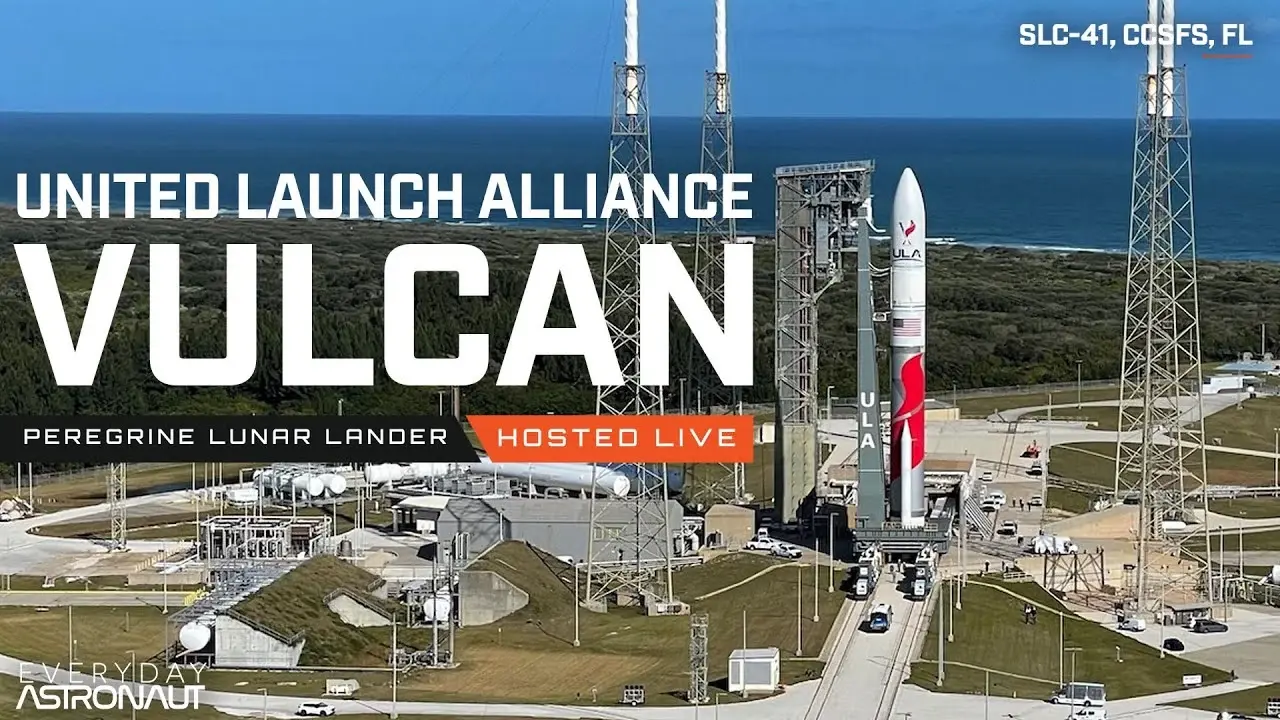Sonori
- 8 Posts
- 249 Comments

 5·2 days ago
5·2 days agoGiven how entrenched support for Isreal is parts of the base and moreover how conflicted much of the middle ground of the community is, I expect a lot of them would have sat the election out. Of course I think playing both sides of the street did lead to a lot of them sitting it out, but I think the hope was that an week intermediate position would allow for unity and coalition building around issues that didn’t have your party primarily fighting itself.

 10·2 days ago
10·2 days agoAnd the Jewish voting population of PA is more than three times that. Now, that hardly means that they’ll all vote for Isreal, but it does mean that how that group breaks has a far more outsized impact and why Haris was focused so much on things that both sides can generally agree with like conditional aid.
I would have much preferred an actual hardline leftist stance of course, but at the end of the day Gaza does not seem to have played a significant part in this election.

 4·2 days ago
4·2 days agoNot really, without Pennsylvania Michigan doesn’t matter unless nearly every other swing state goes for her, and they don’t look like that’s even a possibility.

 5·3 days ago
5·3 days agoI’ve considered it, but as they say, the market can stay irrational longer than you can stay solvent. Given you have to pay interest on short positions and can only make as much as the stock falls by, if they can keep the grift going for another year or two the market could crash and you would still turn a loss.

If it is it’s not current, as the storm has dropped to a category 3 as it neared land. We were up to 171mph a few days ago as it was building though, so it may just be a forecast from around then.

Technically, it’s not wrong that worldwide the largest method of electricity generation is coal, but it does tend to be far smaller and shrinking in the richer western nations with lots of EV’s people are probably thinking of, even before getting to the whole electricity is on track to be made carbon neutral a lot sooner than gasoline thing.
I’m actually very impressed that Finland managed to avoid the ‘clean LNG’ that North America got sold on, good work.

Generations? The average American passenger vehicle is 14 years old, so if tomorrow all new cars were electric, you would have haved car transport emissions within 15 years, and be at a 75 percent reduction within the first generation. Cut out fossil fuel subsidies so people are paying the 8 or so dollars per gallon it actually costs for gas and incentivize US manufacturers to actually build affordable cars and you’ll see much quicker adoption that what normal wear and tear causes.
Of course that isn’t going to happen tomorrow in the US, but you are also going to have a lot of vehicles already sold in the decades prior and which tend to stay on the road longer.
Compared to the fifteen or so years it takes to build a single light rail line, much less intercity high speed rail, and you are not going to be able to replace half of all car traffic in a single build cycle, much less reach 75 percent within thirty years, by which point you’re trying to replace all traffic in the very small towns and unincorporated areas that even nations renowned the world over for their public transit connectivity often struggle to reach.
Does the US need to build more mass transit, yes. Can it do so faster than it already buys new cars, no.

There are, with the federal government alone paying 7k on most EVs sold in the US. The problem is that they are neoliberal flat subsidies applied at the point of sale that needed Republican support to enter law and as such companies just tack on 7k to the price customers are willing to pay anyway.
What we need is to incentivize manufacturers to focus on bringing down costs by focusing on things like LFP batteries and smaller vehicles, but manufacturers are currently incentivized to make larger vehicles because people are willing to pay a lot more than the added space cost to make, thusly increasing margins. At the very least making the full subsidy only available on vehicles under 25k, with a decreasing subsidy for vehicles under 50k would probably help, but you would need to be ready and willing to call manufacturers on their near certain attempts to get around it.
Some actual price wars between manufacturers would help too, but US auto manufacturers will fight tooth and nail to forestall that possibility.

The problem is that to effectively fight climate change you need to cut emissions in five to ten years, and not fifty to a hundred, and in a nation where even a solidly blue locality openly dedicated to fighting climate change can take ten years and hundreds of millions of dollars to open a bus lane, it should not come as a surprise that many people with the resources to do so are choosing an imperfect solution now rather than running for office so they can get a bus line to their neighborhood in a few decades.
This is before we get to the fact that even nations which world leading public transport systems known for connecting to every small village and house still have plenty of cars and highways, people just don’t try and use them to for every trip in a dense city and plenty of people can get by without owning a car at all. We need to eliminate all emissions, not just city emissions, and we needed to do so ten years ago.
Yes north america needs more common, frequent, and reliable mass transit and the fact that the richest country in the world’s mass transit is in such a state is a national disgrace, but that is not opposed to the quick elimination of oil burning cars but rather should be done in parallel to them.

Hey, I think i’ve seen this movie.

 1·1 month ago
1·1 month agoMostly its the fuel costs adding to operating costs, but dealing with a cryogenic and highly flammable liquid/gas and all the related fluid handling, pressure regulators, and piping necessary is always going to be more labor and repair intensive than just expanding and directly charging the battery the vehicle needs to have anyway.

 1·1 month ago
1·1 month agoBecause green hydrogen is expensive, and the more realistic projections estimate it will remain so to at least 2050.
If we use the CRU estimations, which notably are a trade group very much betting on green hydrogen adoption, we should be expecting at best a price of $3 dollars a kg in the distant future, with the current best price being more in the range of $6-$7 dollars a kg. With a 65% effective fuel cell that works out to the hauler getting its electricity at 28 cents a kwh with the possibility of going down to as low as 14 cents a kwh in future.
For reference, the average industrial electricity rate in 2023 was 8 cents per kwh, and Lazard puts the cost of utility scale solar at between 3 and 9 cents a kwh if a mine wants to roll their own. Wholesale Diesel fuel has ranged from about $2 to about $2.8 a gallon so at a reasonable 38% efficiency you get about 14 to 20 cents per kwh.
Not as bad as I expected offhand thanks to the current low cost of industrial green hydrogen, but your still looking at spending a massive amount of money for big platinum catalyst fuel cells and electric powertrains all so that you can spend thirty percent more on fuel than you do currently, as compared to using the grid directly for fifty percent less than you currently spend.
And we haven’t even mentioned that these things are going up and down a steep grade all day, so not only do you want massive batteries anyway so you can recharge on the way down, but you need them because unlike a small FCEV where it’s fuel cell is nowhere near large enough to output full power (and as such is only used to charge the battery) you do actually need to be able to sustain full power for the whole trip up.
TLDR: Industrial electricity is far cheaper than Diesel, let alone the more expensive green hydrogen. Hydrogen may be able to compete on a one or one level with Diesel in the far future, but given the upfront cost of the kit you might as well go all the way so you’re saving money over the long term.

 2·1 month ago
2·1 month agoThen your looking at almost an order of magnitude increase in fuel costs and a related increase in operating costs rather than savings.

 22·1 month ago
22·1 month agoWhat, founder of cryptoscam Worldcoin is going to cash out of a project sold primarily on hype. Say it ain’t so. /s

I mean sulfur is also a natural part of our atmosphere that geologic activity has been spewing out into the air for as long as earth has had air, but I’m still going to call it pollution if you’re power plant pumps a vast quantity of it into the atmosphere and now it’s raining acid on me.
We have more than doubled the amount of carbon dioxide in our atmosphere, with half of that doubling having been done in the last thirty years alone. The very oceans are acidifying to the point large swaths of marine life are being wiped out, and thousands to hundreds of thousands of people are being killled by the effects of global warming each and every year. It’s pollution, it’s just the pollution is on such a vastly larger and more dangerous scale than any acid rain or smog people are used to thinking about.

 8·2 months ago
8·2 months agoWhy should I be afraid of a foreign company learning my information, and instead trust a local one that proudly sells it on the open market to anyone that wants it?
This proposal puts no fetters on what information amarican companies gather or sell to the Chinese.
And yes, the largest nation in the world definitely stole all their technology, all thouse technology transfer agreements, companies outsourcing their manufacturing lines to it, and of course the hundreds of billions it’s government poured into the R&D of new energy technologies at a time when most western countries were slashing or eliminating their own subsidies and investments had nothing to do with it. Nope, none at all./s
Don’t get me wrong, fuck the CCP. They are authoritarian imperialists who constantly cultivate racism and xenophobia while openly punishing anyone who speaks out against them, and are far, far more interested in protecting the power of the party’s leadership than even appearing to try and appear actually left wing, but this does nothing to protect american consumers.
The only practical effect is to shield amarican manufacturers from competition with companies that have not colluded to focus exclusively on the largest, highest profit gas guzzlers they could fit on the roads during the last two decades the instant it looked like their customers might actually have had an option but to bend over and take it.
Chrysler and GM could have focused their efforts on building cheaper EVs instead of half assing compliance cars and then selling them for enough to ensure that sales would never get big enough to divert manufacturering lines from their high profit margin Trucks and SUVs, but instead actually chose not to.
Now the government is actively protecting them from competition on a thin pretense, and say it with me now, we know it’s a thin pretense because the government has no problem with Amarican, european, Japanese, and Korean companies doing the literal same exact thing and then selling the same recordings to the Chinese government.
If the government was actually even the slightest bit concerned about amarican car buyers privacy, it would not allow a company like Tesla where employees regularly pass around clip compilations of the funniest things they’ve seen on the car’s internal cameras to have cellular modems, internal cameras, or over the air updates.
Instead it says if you want a car with bluetooth speakers or over the air security updates, you must buy the land yacht from the good amarican company that just donated to our campaign and is making a killing on the margin shortly after it looked like even a hundred percent tariff might not be enough to protect amarican car manufacturers from the consequence of their own direct choices.

 21·2 months ago
21·2 months agoBoy, it sure is a good thing that there is only risk from low cost Chinese vehicles, could you imagine if security researchers had been demonstrating that these theoretical attacks have actually been trivially done on American and european vehicles for decades now? Thankfully all other car companies are bastions of cybersecurity best practices, near impossible to hack or slip malicious code into via an over the air update.
Also could you imagine if a Chinese company could spy on you directly and learn personal infomation though your vehicle, instead of buying that same information on the open market from a good american car company instead? The horror.
It’s just a convenient coincidence that this comes at the same time as the american car industry risked actual competition with competitors that didn’t spend the last two decades building half assed compliance EVs while focusing on selling the public on the largest, highest markup truck and SUV that can still theoretically fit on the road.
Ohh well, guess Amaricans are just going to have to pay three times as much for new vehicles than the rest of the world for vehicles with similar manufacturing costs, wouldn’t want to risk GM or Fords profit margins after all.
I sure am glad that the government may not be willing to provide social housing without a five year wait list while you to live in a tent under the freeway and get all your worldly possessions, photos, and documents thrown out by police, but is always proactive about ensuring that billion dollar companies never have to worry about facing even the slightest consequence of their own active decisions to undermine the fight against climate change.
Biggest /s possible.

Hopefully they’ve fixed the printer .(a really good talk on systemic failures by the way).

Precisely, their a gas company. Helping the planet means just turning everything off and never turning it on again, so you know the only green promise they want to keep is the green in their share price.




The silver lining is that everyone from Lemmy, to youtube, to Bernie seems to have correctly identified the problem early on this time around, so much of the anger is being directed towards the party establishment for screwing up the easy win as it is towards Trump. The question is whether or not that anger can be turned towards productive action to gain control of the DNC, or will be quashed by the establishment once again.
Time, and agitation, will tell.